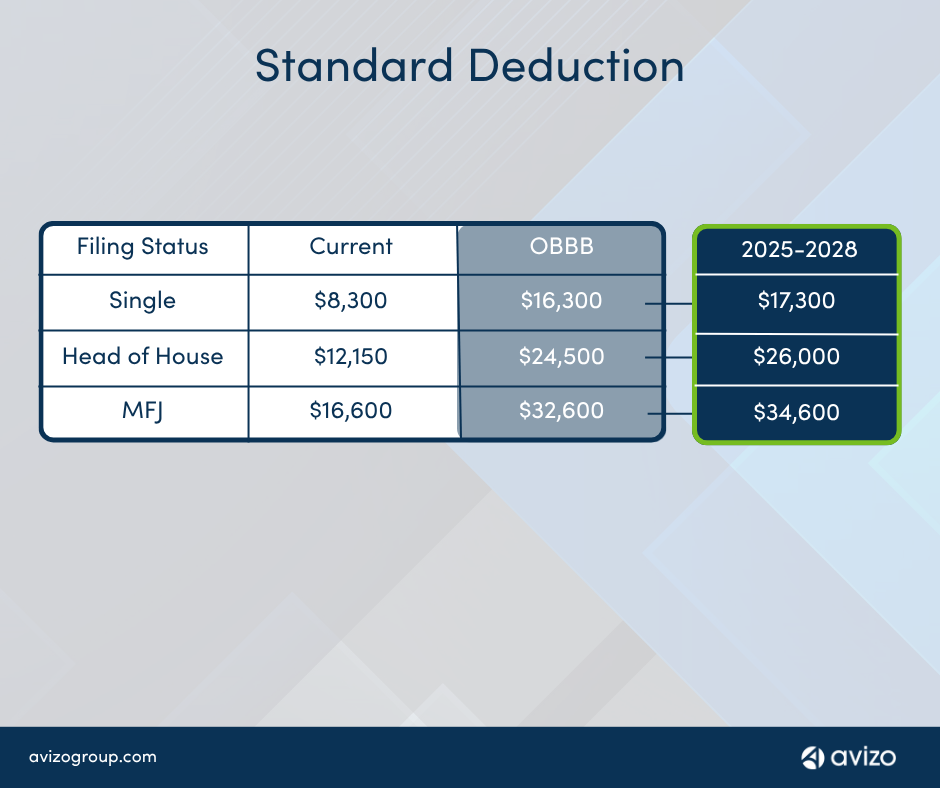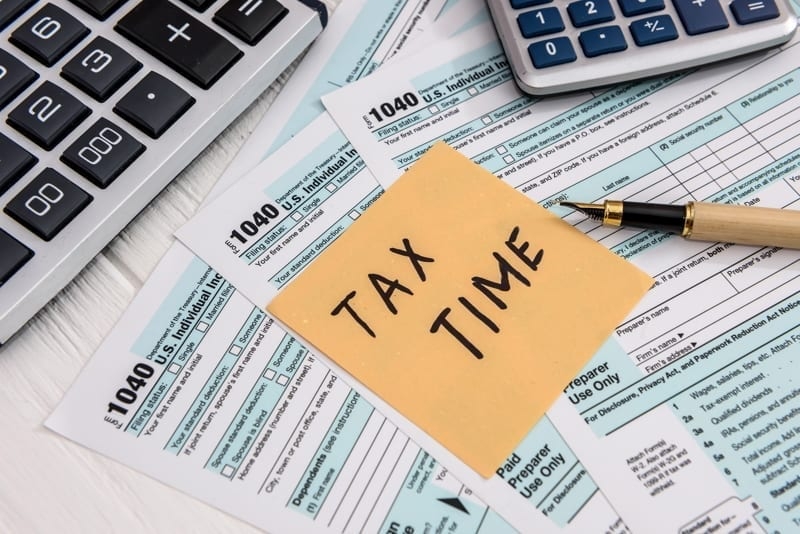The role the FEIE Standard Deduction plays in long-term expat tax planning
All Regarding the Foreign Earned Income Exemption: Optimizing Your Standard Deduction Advantages
The Foreign Earned Revenue Exemption (FEIE) offers a useful opportunity for U.S. people living abroad to reduce their tax responsibilities. Comprehending the eligibility criteria is important for those looking for to take advantage of this exclusion. Declaring the basic reduction can boost general tax obligation benefits. Nonetheless, managing this procedure entails cautious interest to detail and a recognition of typical risks. Checking out these facets can offer quality and maximize possible tax obligation benefits.
Understanding the Foreign Earned Earnings Exclusion (FEIE)
The Foreign Earned Income Exemption (FEIE) permits united state people and resident aliens working abroad to leave out a part of their international earnings from federal income tax obligation. This arrangement functions as a financial alleviation device, enabling expatriates to maintain a bigger share of their revenue earned in foreign nations. By minimizing taxable income, the FEIE helps reduce the problem of dual tax, as people may also be subject to tax obligations in their host nations. The exemption applies only to made earnings, which includes earnings, incomes, and expert fees, while easy earnings and financial investment gains do not qualify. To benefit from the FEIE, people should submit certain types with the IRS, describing their foreign revenues and residency - FEIE Standard Deduction. Understanding the nuances of the FEIE can greatly influence monetary planning for united state residents living overseas, making it crucial for migrants to stay notified about this beneficial tax obligation arrangement
Eligibility Standards for the FEIE
To get the Foreign Earned Income Exclusion (FEIE), individuals have to fulfill specific eligibility criteria. This includes enjoyable residency needs, passing the physical existence examination, and developing a tax obligation home in an international nation. Each of these variables plays a vital duty in identifying whether one can gain from the exclusion.
Residency Demands
Fulfilling the residency demands is essential for individuals seeking to qualify for the Foreign Earned Income Exclusion (FEIE) To be qualified, taxpayers must establish a bona fide residence in an international country or nations for an undisturbed duration that typically extends an entire tax obligation year. This requirement emphasizes the need of a much deeper link to the foreign area, moving beyond mere physical existence. Individuals have to demonstrate their intent to stay in the international nation and have developed their living situation there. Aspects such as the size of remain, type of housing, and regional community participation are taken into consideration in figuring out residency. Fulfilling these standards is vital, as failure to do so may invalidate one from gaining from the FEIE.
Physical Presence Test
Developing qualification for the Foreign Earned Income Exclusion (FEIE) can additionally be attained via the Physical Visibility Test, which calls for people to be literally present in a foreign nation for at the very least 330 full days throughout a consecutive 12-month period. This examination is advantageous for those who might not satisfy the residency need yet still reside abroad. The 330 days should be complete days, suggesting that any type of day invested in the USA does not count toward this total. It is important for people to preserve precise documents of their travel dates and places to support their cases. Effectively passing this test can considerably minimize gross income and enhance financial results for migrants.
Tax Home Place
Tax home area plays a necessary duty in figuring out qualification for the Foreign Earned Income Exemption (FEIE) To qualify, an individual need to establish a tax obligation home in an international country, which suggests their key workplace is outside the United States. This is unique from a plain residence; the specific should conduct their operate in the international country while maintaining a significant link to it. The internal revenue service requires that the taxpayer can show the intent to stay in the international place for an extensive duration. Furthermore, preserving a home in the united state can make complex qualification, as it may recommend that the individual's true tax home is still in the United States. Understanding this requirement is essential for making the most of FEIE benefits.
How to Assert the FEIE on Your Income Tax Return
Asserting the Foreign Earned Revenue Exemption (FEIE) on a tax return needs careful focus to detail and adherence to specific IRS guidelines. Taxpayers need to initially validate qualification by fulfilling either the authentic house examination or the physical visibility examination. Once qualification is validated, they must complete IRS Form 2555, which details foreign earned income and appropriate details concerning their tax home.
It is necessary to report all foreign earnings properly and maintain suitable paperwork to sustain claims. Taxpayers must also be mindful of the maximum exemption limitation, which is subject to yearly adjustments by the internal revenue service. Declaring my explanation Form 2555 together with the annual income tax return enables taxpayers to omit a part of their foreign incomes from united state taxes. Ultimately, it is suggested to speak with a tax professional or internal revenue service resources for updated info and guidance on the FEIE procedure, assuring conformity and maximization of prospective benefits.
The Standard Deduction: What You Need to Know
Exactly how does the typical deduction impact taxpayers' total economic scenario? The basic deduction serves as a significant tax obligation benefit, minimizing taxed income and possibly reducing tax obligations. For the tax year 2023, the conventional reduction is evaluated $13,850 for solitary filers and $27,700 for married pairs filing collectively. This reduction streamlines the declaring process, as taxpayers can choose for it rather than detailing reductions, which calls for detailed record-keeping.

Taxpayers gaining international earnings might still declare the basic reduction, profiting from decreased gross income even while utilizing the Foreign Earned Earnings Exemption (FEIE) Nonetheless, it is necessary to note that the common reduction can not be integrated with itemized reductions for the same tax year. Comprehending the common reduction enables taxpayers to make informed choices regarding their tax approaches, maximizing available advantages while making sure conformity with Internal revenue service guidelines.
Approaches for Maximizing Your Reductions
Making the most of reductions under the Foreign Earned Revenue Exemption calls for a clear understanding of gained earnings restrictions and the advantages of claiming housing exemptions. In addition, making use of Type 2555 successfully can enhance the potential for substantial tax financial savings. These strategies can greatly affect the overall tax liability for migrants.
Understand Earned Revenue Limitations
While several expatriates look for to lower their tax concern, comprehending the gained income restrictions is vital for properly leveraging the Foreign Earned Earnings Exemption. The Internal Revenue Service (IRS) sets certain limits that determine the optimum quantity of international gained revenue eligible for exclusion. For the tax year 2023, this limitation is $120,000 per certified person. Surpassing this threshold may cause taxes on the income above the limitation, decreasing the benefits of the exemption. To take full advantage of deductions, migrants ought to maintain accurate records of their international earned income and assess their eligibility for the exemption annually. Strategic planning around these limits can substantially enhance tax savings, allowing expatriates to optimize their financial situation while living abroad.
Claiming Housing Exemption Conveniences
Many migrants forget the possible advantages of asserting the Housing Exclusion, which can significantly decrease their gross income. This exemption enables individuals living abroad to deduct certain real estate expenditures from their gross earnings, making it easier to meet financial commitments without sustaining considerable tax responsibilities. To maximize this advantage, expatriates must verify they certify based on their house and work situations. Additionally, comprehending eligible expenditures-- such as rent, utilities, and maintenance-- can improve the overall reduction. Keeping comprehensive documents of these costs is crucial for corroborating claims. By purposefully maneuvering via the Housing Exemption, expatriates can notably reduce their tax problem and keep even more of their profits while living overseas, inevitably boosting their financial well-being.
Use Type 2555 Successfully
Utilizing Kind 2555 successfully can considerably improve the financial advantages readily available to expatriates, specifically after making the most of the Real estate Exemption. This type allows people to declare the Foreign Earned Income Exemption, which can substantially decrease gross income. To maximize deductions, migrants need to verify they meet the certifications, consisting of the physical visibility examination read this article or the authentic residence test. It is vital to accurately report all international gained earnings and to maintain thorough documents of eligibility. Additionally, using the Housing Exclusion in tandem with Type 2555 can additionally lower total tax obligation liability. By recognizing the complexities of these forms, migrants can optimize their tax obligation situation and retain more of their hard-earned revenue while living abroad.
Typical Challenges to Prevent When Filing Your Tax Obligations Abroad

Frequently Asked Concerns
Can I Assert Both FEIE and the Foreign Tax Credit?
Yes, an individual can claim both the Foreign Earned Earnings Exemption (FEIE) and the Foreign Tax Obligation Credit Rating (FTC) Nevertheless, they need to ensure that the exact same earnings is not utilized for both benefits to prevent double benefits.
What Takes place if I Go Beyond the FEIE Revenue Limit?
Surpassing the Foreign Earned Income Exemption (FEIE) earnings restriction leads to the ineligibility for the exclusion on the excess quantity. This could bring about taxable income in the USA, requiring ideal tax filings.
Are There Any Type Of State Tax Implications for FEIE?
State tax obligation effects for the Foreign Earned Earnings Exclusion (FEIE) differ by state. Some states might exhaust international earnings while others follow government exclusions, making it essential for people to consult state-specific tax obligation regulations for quality.

Exactly How Does FEIE Impact My Social Protection Conveniences?
The Foreign Earned Revenue Exemption (FEIE) does not directly impact Social Security benefits. Earnings excluded under FEIE may influence the estimation of typical indexed regular monthly profits, potentially affecting future advantages.
Can I Revoke My FEIE Election After Claiming It?
Yes, a person can withdraw their Foreign Earned Income Exclusion (FEIE) political election after claiming it. This revocation has to be carried out in creating and sent to the IRS, sticking to details standards and target dates.
Recognizing the Foreign Earned Revenue Exemption (FEIE)
The Foreign Earned International Exclusion EarningsFEIE) allows U.S. citizens united state resident aliens working abroad functioning exclude a portion of their foreign earnings international profits income taxRevenue Taxpayers making foreign earnings may still assert the common deduction, profiting from decreased taxable earnings even while using the Foreign Earned Income Exemption (FEIE) Making best use of deductions under the Foreign Earned Income Exemption needs a clear understanding of gained earnings restrictions and the benefits of asserting housing exemptions. While many migrants look for to decrease their tax obligation burden, comprehending the earned earnings restrictions is vital for effectively leveraging the Foreign Earned Earnings Exemption. Surpassing the Foreign Earned Revenue Exemption (FEIE) earnings limitation results in the ineligibility for the exclusion on the excess quantity.